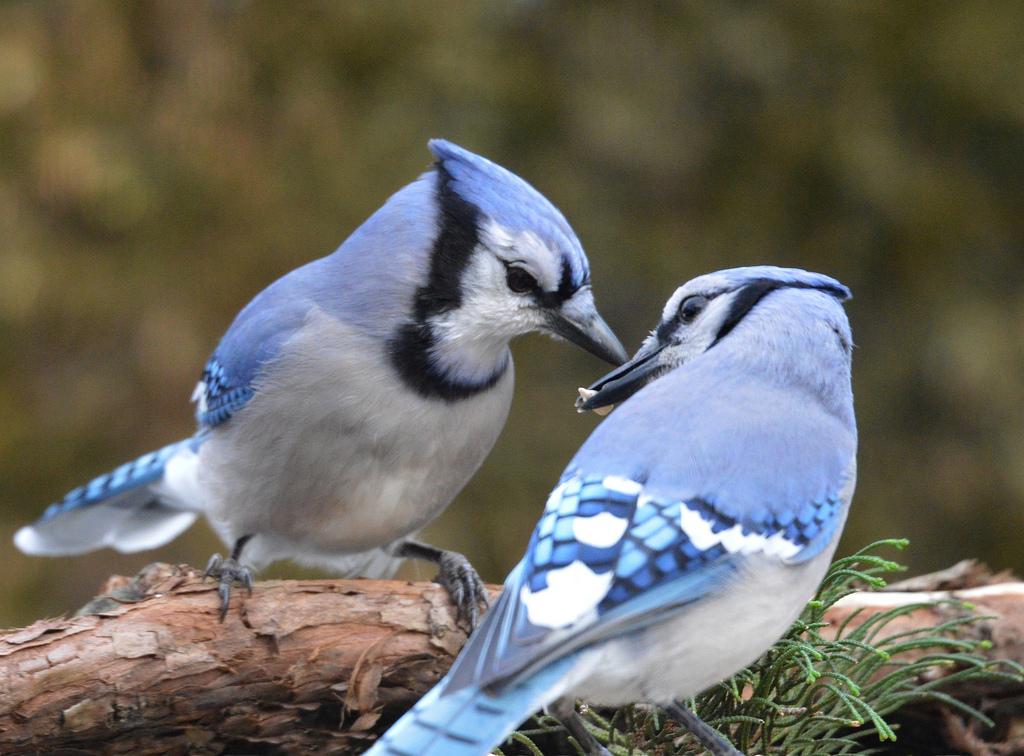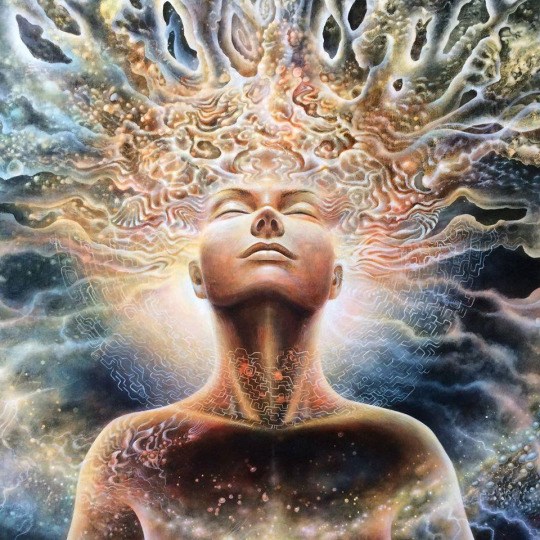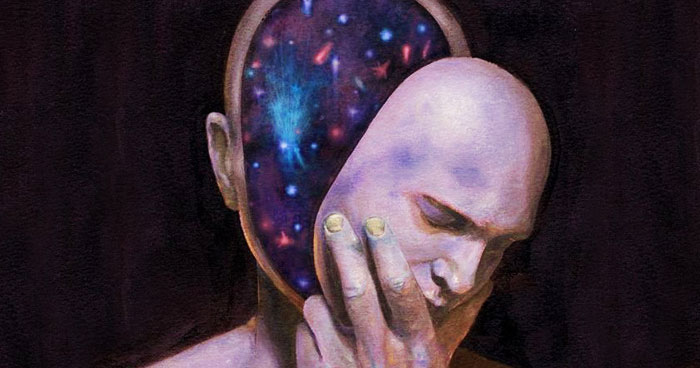On one of the hottest days of the year, when the temperature reached near 40 degrees (104), I found a quiet, shady spot by the stream for a meditation. There were few people in the quarter-mile wide park along the creek that runs through town.
A pair of jays bathed in the shaded shallows across the stream. When they finished they dove into the underbrush and then stood vigil on branches overhanging the creek, where they squawked and chased other birds away.
Jays are smart, aggressive and mischievous. They have adapted well to living around humans, and one can’t help wondering how influenced they are by us.
A mind in meditation is a brain that is no longer dominated by thought and time. By passively watching every reaction of  thought and emotion in the same way one watches those jays, attention gathers and acts without volition on the movement of thought.
thought and emotion in the same way one watches those jays, attention gathers and acts without volition on the movement of thought.
Sensory perception is key. The mind-as-thought normally filters what we see and hear, but it isn’t difficult to listen without judging and see without naming. Then one’s senses become acute. You feel the brush of the lightest breeze on the skin. You hear a distant hawk over the lightly lapping current.
As the mind spontaneously quieted in passive awareness and attention, the hawks grew audibly near. I couldn’t see them in the thick foliage of the oaks and sycamores, but their cries became more insistent as negation in meditation deepened.
All systems and methods of meditation are false because they are based on thought and effort. To end thought requires effortless, curious, playful and quick awareness in the mirror of nature. Then there is renewal, and “the peace that passes all understanding.”
Essentially, meditation is the cessation of all psychological movement in attention. In the effortless negation of thought/time, there is communion with life and death, and sacredness completely beyond words and concepts.
Given that one ends thought during these meditations by the stream, why does the brain revert to consciousness based on thought? Is it that any residue of psychological thought in memory or emotion is enough to allow the brain to revert to the ancient habit of thought/time?
The question of whether human beings can bring about a transmutation in the brain grows more urgent by the week. But what exactly would such a mutation mean, and could ordinary human beings actually create it?
First of all, the crisis we face is not national, of ‘American leadership’ (which was dubious at best), or even of Western civilization. It is a crisis of human consciousness itself.
We humans are a psychological species that have reached the end of the psychological basis of being and living. When cultures were geographically distinct and intact, different peoples created different myths, traditions and social/political organizations. But that mode of being and living is finished in our interconnected, digital age.
Psychological memory is the useless content of the past. The vast majority of people venerate personal, familial and racial memory, but it actually has little or no value. Indeed, psychological memory is the greatest impediment to growing into a human being, and to communion with the intrinsic sacredness of the cosmos.
Humans live in terms of memory and the past; human beings live in terms of sensory awareness and insight in the present. Is all psychological memory also emotional memory?
There’s a clear distinction between psychological thought and functional thought. If you’ve ever spent any time in the wilderness alone, the distinction is clear.
For me, the first night brought an emotional and mental storm, but by the second day, the mind quieted and was only engaged for the tasks at hand.
After a vigorous walk along the shady paths, I waded upstream and lay down, letting the creek carry me a short distance downstream. Coming to rest on the rocks at a shallow spot under the large leaves of a vine tree, the gentle current rippled around the body.
A hawk flew up and silently landed in a branch overhead. It stared down for some minutes as I stared up at it with my head under the water. Life is a strange thing.
Martin LeFevre

